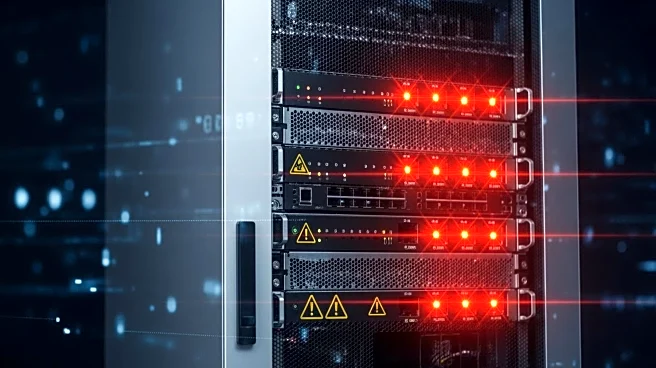What's Happening?
F5 Networks, a Seattle-based maker of networking software, disclosed a significant security breach involving a sophisticated nation-state hacking group. The breach has created an 'imminent threat' to thousands
of networks, including those operated by the US government and Fortune 500 companies. The hackers infiltrated F5's network over a long period, gaining control of the segment used to create and distribute updates for BIG-IP, a line of server appliances used by 48 of the world's top 50 corporations. The hackers downloaded proprietary BIG-IP source code and information about vulnerabilities that had not yet been patched, along with configuration settings used by some customers. This access potentially allows the hackers to exploit weaknesses in supply-chain attacks on sensitive networks.
Why It's Important?
The breach of F5 Networks is significant due to the potential impact on critical infrastructure and sensitive networks across the United States. With access to unpatched vulnerabilities and customer configurations, the hackers could exploit these weaknesses to conduct supply-chain attacks, potentially compromising data and operations of major corporations and government entities. The incident underscores the vulnerability of supply chains and the importance of robust cybersecurity measures. The breach could lead to increased scrutiny and pressure on companies to enhance their security protocols to prevent similar incidents.
What's Next?
F5 Networks has released updates for its BIG-IP, F5OS, BIG-IQ, and APM products to address the vulnerabilities. Investigations by external firms, including IOActive and NCC Group, have not found evidence of supply-chain attacks or critical vulnerabilities introduced by the hackers. However, the company has rotated BIG-IP signing certificates as a precautionary measure. The ongoing investigations and updates are crucial steps in mitigating the threat and preventing further exploitation of the vulnerabilities.
Beyond the Headlines
The breach highlights the growing threat of nation-state cyberattacks and the need for international cooperation in cybersecurity. It raises ethical and legal questions about the responsibilities of companies in protecting sensitive data and the potential consequences of failing to do so. The incident may prompt discussions on regulatory measures to ensure companies adhere to stringent cybersecurity standards.










